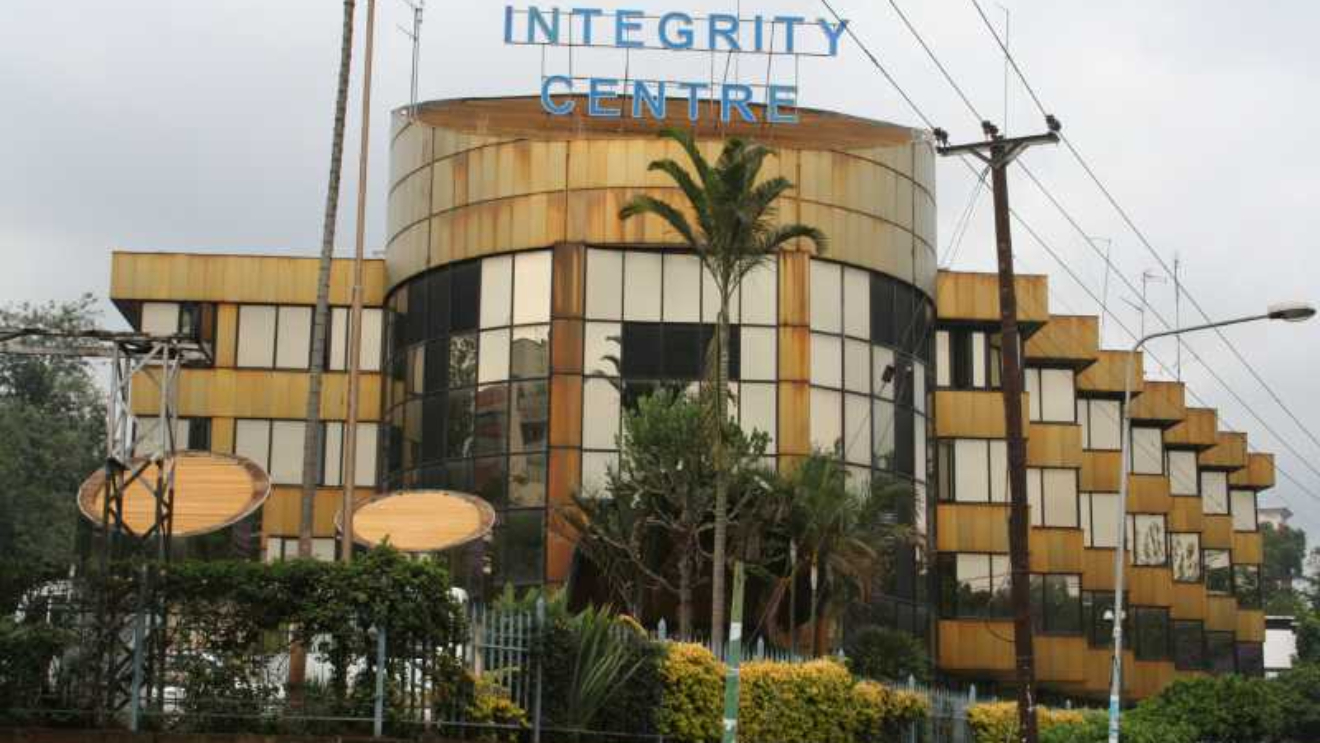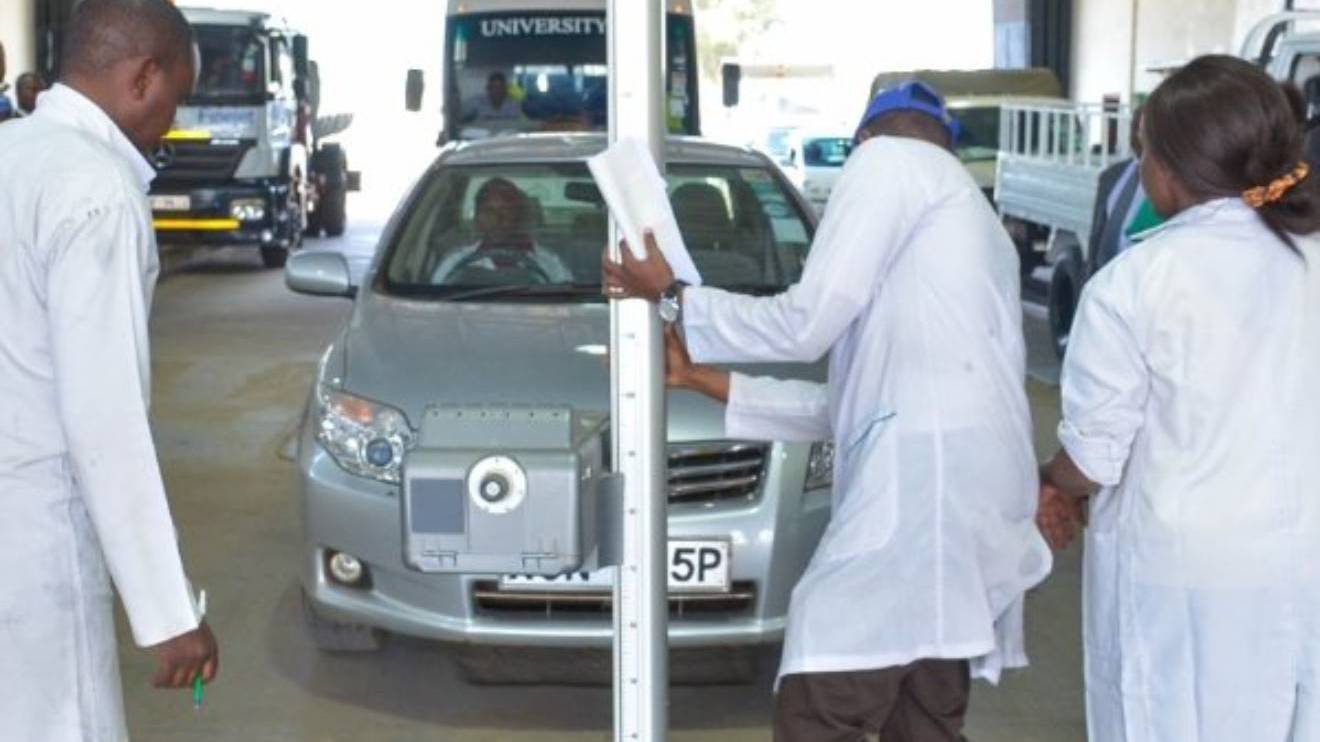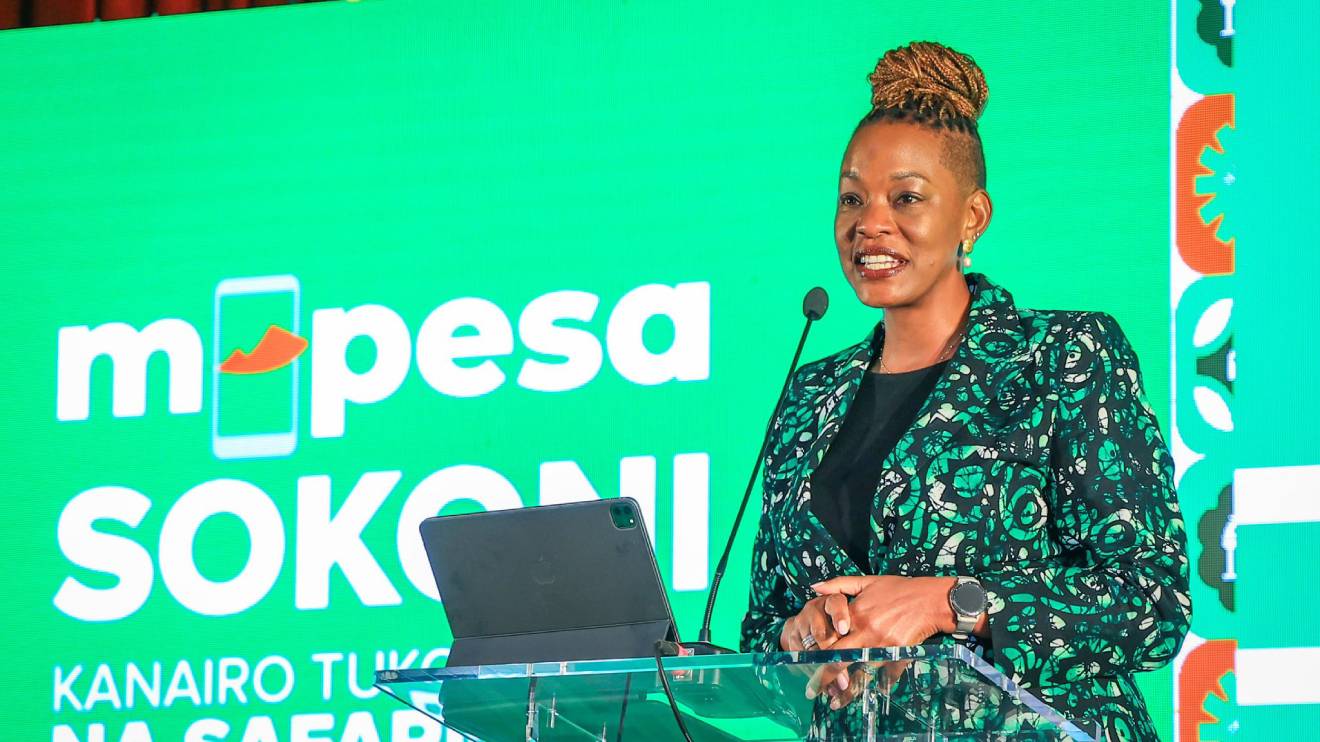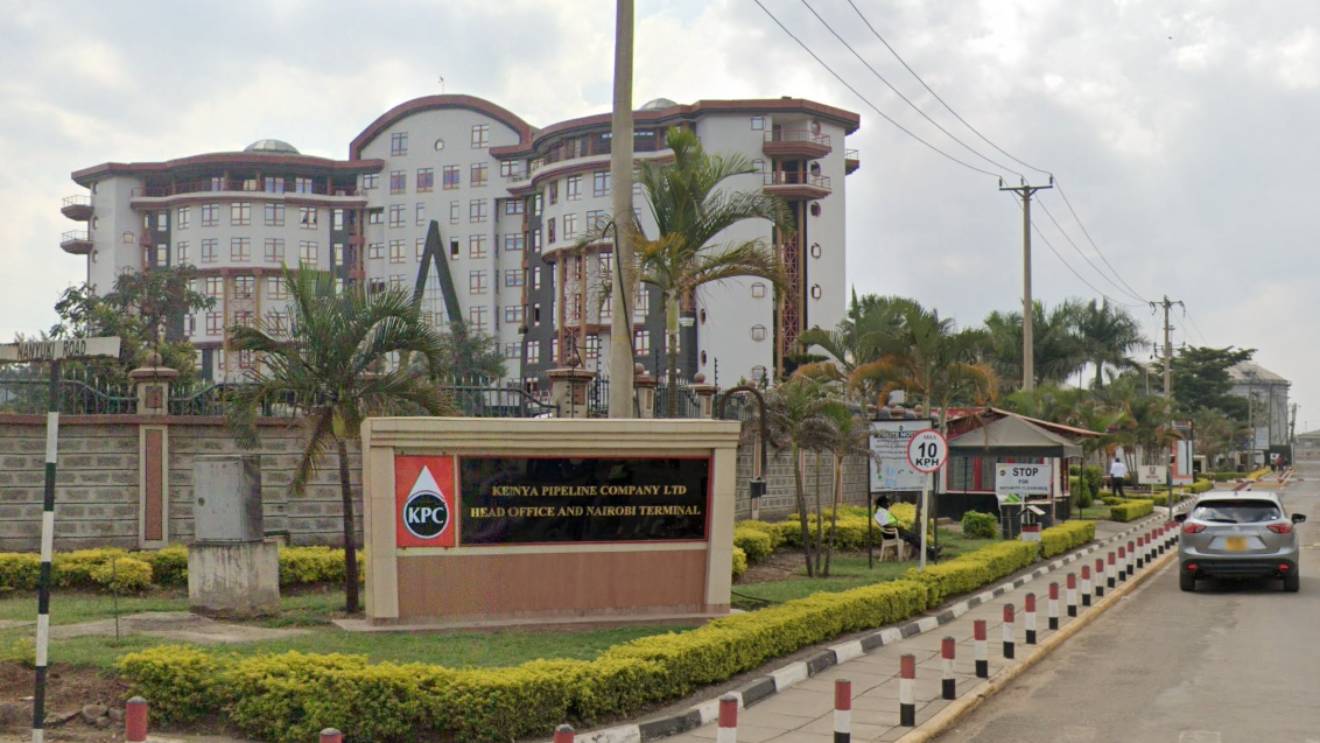The Ethics and Anti-Corruption Commission (EACC) has recently raised an alarm, urging Kenyans to remain vigilant and avoid falling prey to fraudsters who are issuing counterfeit integrity clearance letters for a fee.
These fraudsters falsely claim that the letters are genuine certificates issued by the EACC, citing Section 12A of the Leadership and Integrity Act, 2012.
In response to this growing concern, the EACC has provided important clarifications and guidelines to safeguard the public from these deceptive practices.
First and foremost, the EACC has categorically stated that it does not charge any fees for processing integrity clearance for job applicants or Self Declarations Forms under the Leadership and Integrity Act, 2012.
The commission emphasizes that this service is entirely free of charge, and any demand for payment should be considered fraudulent.
Read More
Furthermore, the EACC does not issue integrity certificates or clearance letters to individuals directly.
Employers are strongly urged to immediately notify the EACC if anyone presents such a letter, claiming that it has been issued by the commission. The EACC has set up a toll-free number, 1551, to facilitate the reporting of such cases.
To provide clarity on the correct process, the EACC explains that upon receiving a Self Declaration Form from an applicant, an acknowledgement receipt is issued in the case of online processing.
Alternatively, a stamped copy of the Self Declaration Form is provided for manual processing.
Applicants are required to present either of these documents to the institutions requesting integrity clearance.
The EACC then issues confidential reports on the integrity status of the applicants directly to the requesting institutions through the established administrative framework.
In order to obtain genuine EACC Integrity Clearance, the commission advises individuals to register for the service online or visit the EACC Headquarters at Integrity Centre.
Additionally, the EACC has 11 regional offices located in Mombasa, Malindi, Kisumu, Bungoma, Kisii, Eldoret, Nakuru, Nyeri, Machakos, Isiolo, and Garissa, where the service is available. EACC Service Desks in Huduma Centres also provide this service.
The EACC has also drawn attention to another fraudulent activity where individuals impersonate the commission and issue fake investigation letters to institutions, business firms, and individuals.
Victims or anyone with information about these fraudsters are urged to notify the EACC immediately to enable prompt action.
As a cautionary measure, the EACC has provided two examples of counterfeit letters being circulated, urging the public to be cautious and avoid being deceived by their fraudulent nature.
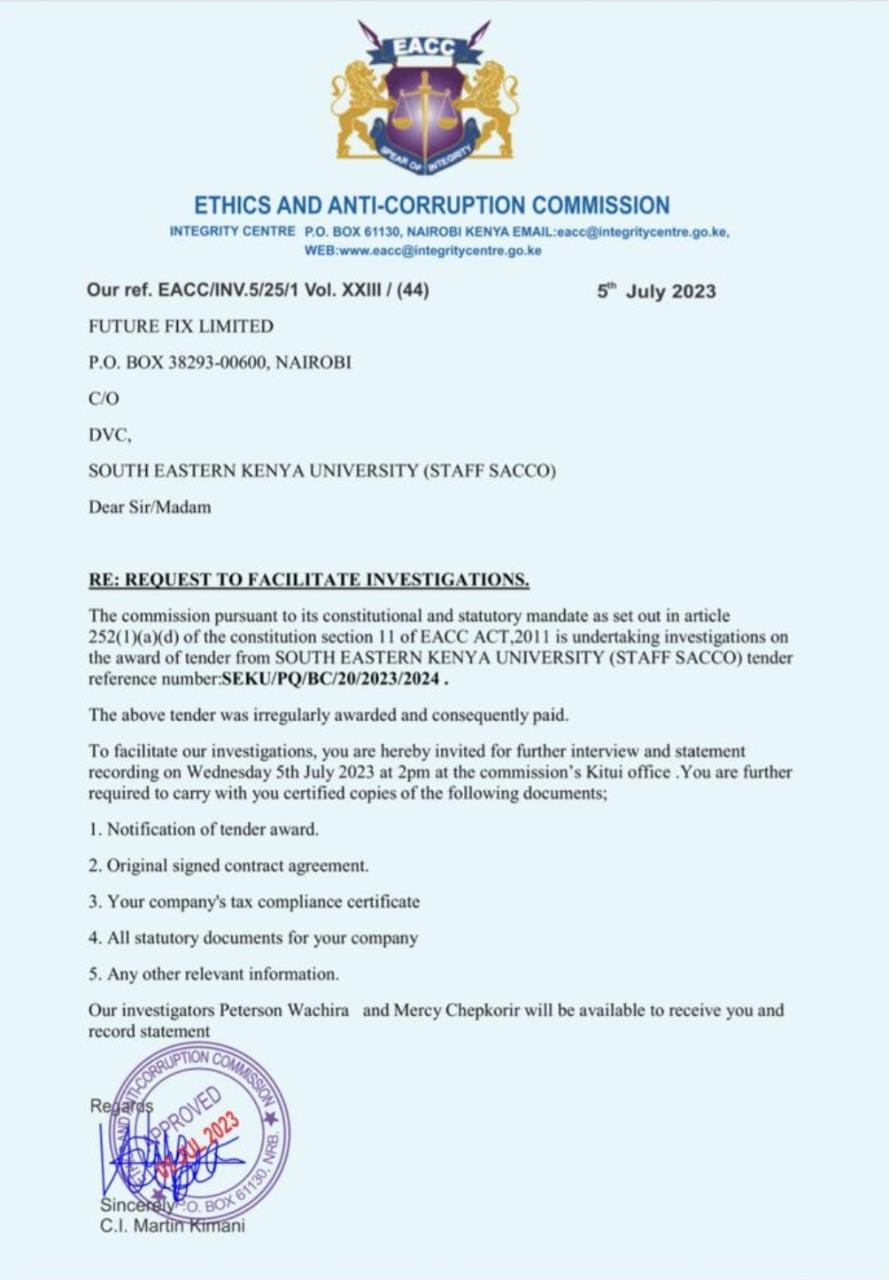
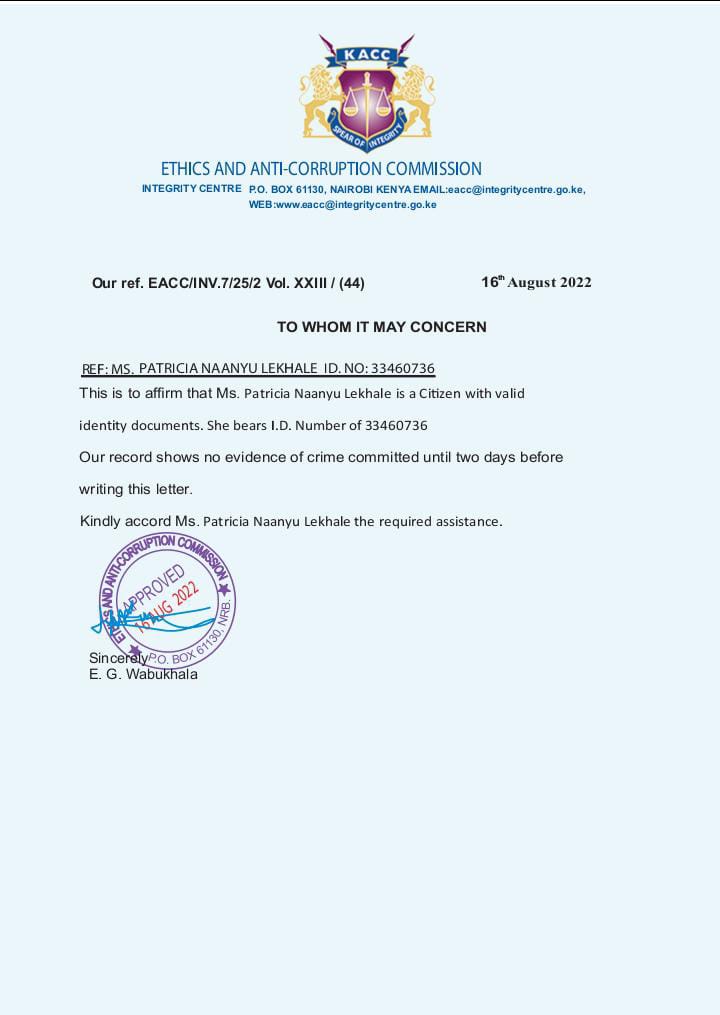
EACC has emphasized the importance of vigilance and caution while dealing with integrity clearance letters.
Kenyans are encouraged to follow the correct procedures outlined by the EACC to obtain genuine clearance and to report any suspicious activities to the commission.
By remaining alert and informed, individuals can play a crucial role in protecting themselves and others from falling victim to fraudulent schemes.

